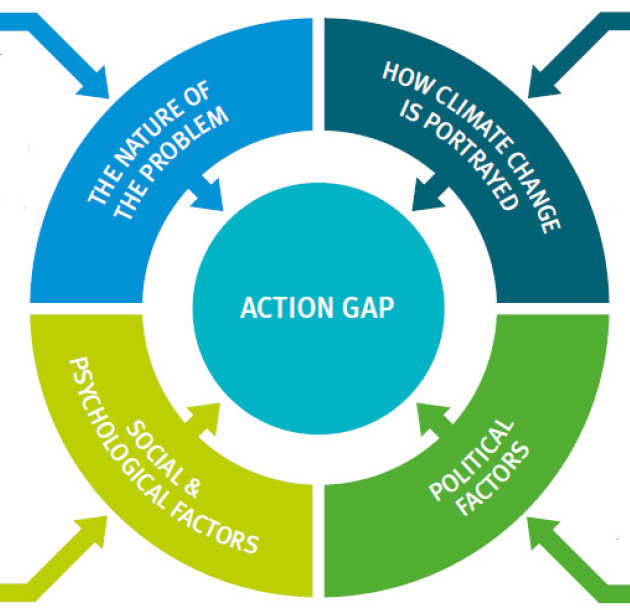Topics: Mitigation
Type: Briefing paper
Publication date: April 2016
Download
Summary
 Authors: Simon Bushell, Dr Mark Workman, Thomas Colley
Authors: Simon Bushell, Dr Mark Workman, Thomas Colley
This briefing paper explores importance of strategic climate narratives, and provides recommendations for promoting ambitious climate policy.
Headlines:
- The scientific case for climate change has been made, and solutions for reducing emissions are now readily available. However, there is a significant action gap between what the scientific evidence shows must be done to prevent the worst impacts of climate change, and what we are currently doing.
- The social and political dimensions of implementing the solutions to the climate change problem are at the heart of this action gap.
- The focus for stimulating action on climate change should therefore shift from scientific, technical and economic perspectives to these social and political elements.
- A good strategy must be at the heart of a climate change solution – combining existing scientific, technical and economic knowledge into a clear overarching blueprint.
- A set of strategic narratives – a story, or system of stories, that explain this strategy in a persuasive way – will be the most effective mechanism to provide relevance for the strategy, ensure engagement with a variety of stakeholders, and motivate action to realise the strategy.
- The process of developing strategic narratives would, itself, play an important role in unifying existing approaches, philosophies and attitudes to climate change into a cohesive and effective message.
- It is time for a wide range of stakeholders to come together and begin an iterative process of narrative forming through a constructive dialogue. This process should engage as many relevant stakeholders as possible, and is likely to require a catalyst or central agent to ensure a link to practice. The outcome of this iterative process should be a short, digestible and persuasive set of narratives that are then propagated by those stakeholders.
Introduction
Climate change is predicted to have catastrophic effects on a global scale. Although multiple ways to minimise its impacts exist, there is a large gap between the greenhouse gas emissions levels required to limit global temperature rise to 'safe' levels, and the emissions cuts pledged by individual countries. There is a further gap between these pledges and what current policy is likely to achieve. This so-called ‘action gap’ presents a serious challenge to policymakers and to humanity.
There are several reasons for this action gap including a number of related sociological, psychological and political problems. Notably, there are two related reasons that both explain the action gap, and could be used to address it. The first is the absence of credible national-level strategy for addressing the problem. In the UK, for example, there has been a vast array of different roadmaps, targets and plans for how to tackle climate change, but there is a lack of any clear, coordinated strategy. The second reason for the action gap is the failure to explain the problem of climate change, and its solutions, in a compelling way. Interestingly, neither of these reasons are scientific, technical or economic.
A coherent strategy and a compelling strategic narrative are essential to closing the action gap on climate change. This paper explores the reasons for the action gap, explains the importance of strategy and strategic narrative, and provides recommendations for the steps required to close this gap.
Download now: Towards a unifying narrative for climate change - Grantham Briefing Paper 18
View publications by:
Topic
Climate Science
Earth and Life Sciences
Energy and Low-Carbon Futures
Resources and Pollution
Economics and Finance
Health
View all publications and browse by year
Publication type
Briefing papers and Briefing notes
Grantham Institute Outlooks
Evidence & submission papers
Infographics
Institute reports and analytics notes
Grantham notes
Collaborative publications
Discussion papers
Institute event overviews
Working papers